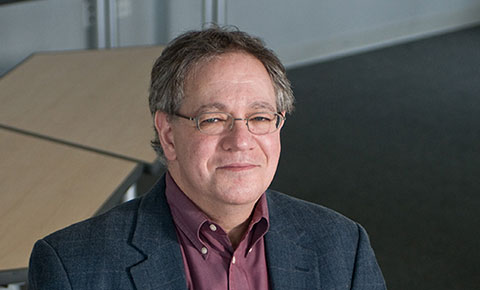Brian Reiser named AERA Fellow
 Northwestern University’s Brian Reiser, professor of learning sciences at the School of Education and Social Policy, has been named a 2021 American Educational Research Association (AERA) Fellow for distinguished and sustained work in science education.
Northwestern University’s Brian Reiser, professor of learning sciences at the School of Education and Social Policy, has been named a 2021 American Educational Research Association (AERA) Fellow for distinguished and sustained work in science education.
Reiser, one of 19 outstanding scholars selected this year, joins previous AERA Fellows Cynthia Coburn (2015), professor of education and social policy; James Spillane (2012), Spencer T. and Ann W. Olin Professor in Learning and Organizational Change and professor of human development and social policy and learning sciences; and professor emeritus Carol Lee (2011).
Earlier in 2021, Reiser and professors Megan Bang and Jonathan Guryan were elected to the National Academy of Education.
"Over the last two decades, Brian has contributed to a fundamental reconceptualization of science instruction, one that is concerned with making the activities in science classrooms more authentic," said Bruce Sherin, professor of learning sciences at the School of Education and Social Policy. "At the same time, he was worked to solve the many problems associated with making this vision a reality in U.S. classrooms – problems that range from the level of individual schools, to the whole nation."
Reiser leads the Next Generation Science Storylines Project at Northwestern University, a researcher-teacher collaborative that develops NGSS-designed storyline units and investigates how they can help make science more meaningful for teachers and students. Working with storyline units, teachers collaborate with students as they identify questions and problems arising from real world phenomena, figuring out how to address them, and making sense of the findings of their investigations.
“Rather than learning about the science work others have done, students become part of figuring how the natural world works,” Reiser says. “Students see the science work they are doing as addressing questions and problems their class has identified.” His group explores how teachers interpret these new science teaching and learning approaches and use them in the classroom.
Reiser’s group collaborates with BSCS Science Learning, in the OpenSciEd Developer Consortium, along with 10 state education agencies. The consortium creates and tests a school series of research-based NGSS-designed storyline instructional materials for middle schoolers. The resources are released as freely downloadable educational resources.
In the wake of the pandemic, Reiser and his team worked with Evanston/Skokie School District 65 educators to adapt units from the OpenSciEd science curriculum for remote learning for middle school students. They designed and helped assemble low-cost science kits that the district gave to each family in the district, so students could work with their teachers to complete science activities at home.
Reiser was a member of the committee authoring the Framework for K-12 Science Education that guided the design of Next Generation Science Standards and similar standards now used in 44 states. He has collaborated with state initiatives to design and provide professional development and to develop curriculum materials for K-12 teachers to support them as they reform science teaching in their classrooms.
Reiser is a Fellow of the International Society of the Learning Sciences. He earned his PhD from Yale University, and has been a researcher and professor at Carnegie Mellon University and Princeton University.